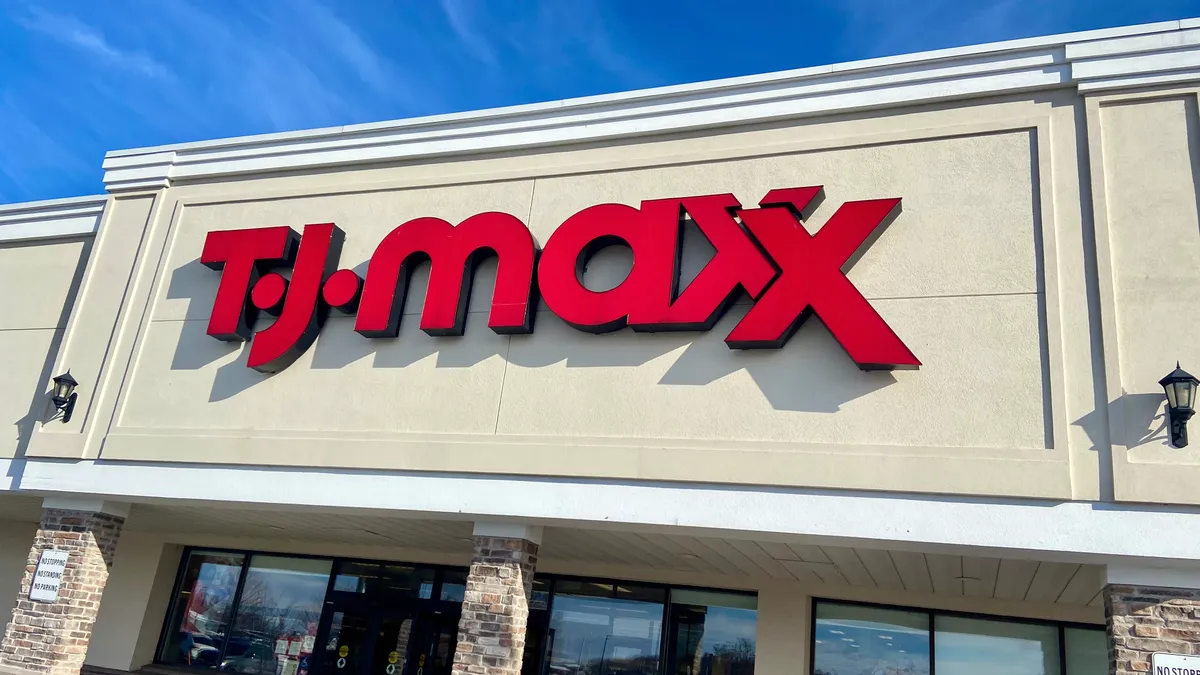Dive Brief:
-
Off-price conglomerate TJX Cos. on Wednesday reported that Q2 net sales rose 7.7% year over year to $12.8 billion. In the U.S., net sales were up 9.2% to $7.9 billion at its Marmaxx division and up 8.4% to $2 billion at HomeGoods.
-
Total store comps were up 6%, with Marmaxx up 8% and HomeGoods up 4%, according to a company press release. Marmaxx includes T.J. Maxx, Marshalls and Sierra.
-
Inventory was down to $6.6 billion from $7.1 billion a year ago. Gross profit margin expanded 2.6 percentage points year over year to 30.2%, and net income was up 22% to $989 million.
Dive Insight:
With its discount prices, appealing merchandise assortment and treasure hunt atmosphere, TJX is benefiting from consumers’ wariness about how they spend their money. T.J. Maxx and Marshalls both picked up new customers, according to GlobalData research.
“While the wider apparel market was challenged throughout the quarter, especially in volume terms, many consumers still wanted to refresh closets for social activities, travel, and going back to the office,” GlobalData Managing Director Neil Saunders said in emailed comments. “TJMaxx and Marshalls helped them to accomplish this without breaking the bank.”
The recent bankruptcy and store closures at Bed Bath & Beyond also likely helped its home goods sales, analysts said. In addition to that boost, HomeGoods pivoted toward housewares amid weak demand in home furnishings and improved its offer, according to Saunders.
“While TJMaxx and Marshalls deserve credit for their strong results, the turnaround at HomeGoods is more of a story,” he said. “After a long period of decline, the home chain is finally back to growing sales.”
Overall, William Blair analyst Dylan Carden also sees the company benefiting from weakness at Target.
But the end of President Biden’s student debt forgiveness program following a Supreme Court decision early this year could interrupt the momentum, analysts said. Carden sees the resumption of student loan payments in coming weeks as TJX’s “largest potential headwind,” which could linger for months. However, Insider Intelligence analyst Rachel Wolff said the off-pricer also “could easily end up benefiting as the additional strain on budgets drives more shoppers to discounters."
















